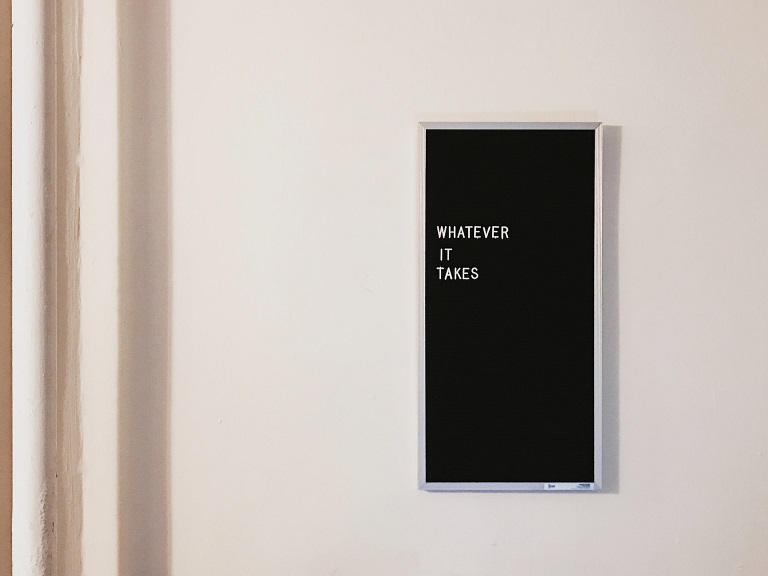What Is Residential Drug Rehab?
Inpatient treatment, also referred to as residential treatment, provides the highest level of rehab services for patients identified with alcohol or other drug addiction. Normally, inpatient drug rehab programs include medical detox and integrated mental health services. With your permission, rehab personnel might likewise talk with your relative and speak with experts you might already be working with to address your requirements and difficulties. Since addiction is an illness that impacts your body, mind and spirit, a multidisciplinary team is combined to supply you with a holistic recovery plan. Your certified staff member for residential treatment may include:
- Physicians
- Nurses
- Psychiatrists
- Psychologists
- Certified marital relationship and family therapists
- Certified addiction counselors
- Nutritionists
- Health and physical fitness experts
- Continuing care planners
- Financial supporters
- Clinical case supervisors
Prepared to take the next step?
Call (866) 503-4950 today and our team of recovery professionals will identify the most reliable drug abuse treatment programs and services to help you reclaim your life from addiction.

The Benefits of Residential Drug Rehab
Residential rehab, and many kinds of inpatient rehab, provide specific benefits that other forms of treatments might not always use. A few of these benefits include:
- The capability to detox in a safe and safe environment offering 24/7 care and support.
- The capability to overcome drug abuse issues, codependency, co-occurring disorders, and injury in a safe and protected environment.
- Various treatments.
- A tight-knit neighborhood with whom to process all phases of substance abuse recovery.
Regardless of the large quantity of benefits that residential rehab offers, all types of substance abuse treatment show useful for those wanting to recover from substance abuse issues. To find out more about various inpatient and residential treatment programs near you in Rochester, Illinois, call: (866) 503-4950
Inpatient Vs. Outpatient Rehab in Rochester Illinois
Inpatient And Outpatient Addiction Treatment
Drug and alcohol treatment programs generally fall into 1 of 2 classifications– inpatient or outpatient rehab. While similarly focused on rehabilitation, each type has unique attributes and advantages to offer. Inpatient rehabilitations are intensive, residential treatment programs designed to treat severe dependencies. Outpatient rehabilitations are part-time programs, allowing the recovering user to keep going to work or school during the day. It is necessary that both the specific with a substance use disorder (SUD) and their loved ones comprehend the differences prior to selecting an inpatient or outpatient treatment program. Checking out all alternatives prior to making a decision can put you or a loved one on the road to recovery long-term sobriety.Inpatient Rehab And Treatment
Inpatient recovery programs, also known as residential treatment, need patients to check themselves into a regulated environment to overcome their dependencies. Patients stay at a center with 24-hour medical and emotional support.Preparing For Inpatient Rehab in Rochester
It is necessary to correctly get ready for rehab. There’s no set amount of time required to get ready for treatment. It is very important to set an entry date for rehab and to have affairs settled before that date. A few of the important things to look after prior to going into rehab include:- Speaking to your company
- Finding living plans for children or other family members
- Preparation how to get to and from the recovery center
- Discovering what personal items are allowed
Family Assistance And Contact In Inpatient Rehab
Successful inpatient centers know family participation is crucial to recovery. Relative can call loved ones in residential treatment to offer emotional support and support. When it comes to how and how frequently residents can communicate with their loved ones, each inpatient center’s policy is various. Some rehab centers also offer counseling for the family of the individual in treatment.Life During Inpatient Rehab in Rochester, IL
Throughout inpatient treatment, locals are able to totally focus on recovering and sober without the interruptions of daily life. A typical day in residential treatment is carefully scheduled and represented. Psychologists, counselors, and psychiatrists consult with patients separately and in group settings to guide inpatient recovery. A typical residential program runs anywhere from 28 days to 6 months. The first step in inpatient treatment is medically assisted detox. Physicians and addiction experts keep track of patients’ important signs while the drugs exit the system. Drug cravings prevail during detox and can be difficult to overcome, frequently causing relapse. Continuous healthcare provided throughout inpatient treatment assists guard against regression. Clinicians can offer required medicine and medical competence to lessen cravings and withdrawals. The brain responds in a different way to various addicting substances gradually and a course of frequent use. Withdrawal signs aren’t enjoyable for any drug, however some drugs need to never be quit without medical guidance. Some withdrawals can be deadly. Lethal withdrawals are linked to drugs like synthetic Opiates, Benzodiazepines, alcohol, and Heroin. During inpatient rehab, clients have access to 24-hour medical attention. This attention can indicate the difference between regression and recovery.Outpatient Rehab And Substance Abuse Treatment
Outpatient drug rehab is less limiting than inpatient programs. Outpatient recovery programs generally require 10 to 12 hours a week invested checking out a regional treatment center. These sessions focus on substance abuse education, private and group counseling, and mentor addicted people how to cope without their drug. Outpatient drug rehab can be a great standalone option for someone with a mild addiction, or it can be part of a long-term treatment program. Outpatient drug rehab can last 3 to 6 months– something similar to inpatient treatment– or over a year.Outpatient Detox Programs in Rochester
Clients with mild-to-moderate drug withdrawal signs might discover outpatient detoxification a fitting alternative to residential detox. Outpatient detox is safe, efficient, and takes less time to finish than inpatient detox; the average outpatient detox is 6.5 days. Patients need to visit a health center or other treatment facility for physical and mental check-ups during outpatient detox. Clinicians or physicians might administer medications on-site to relieve withdrawal signs like anxiety, anxiety, and increased heart rate.How Does Detox Work?
Detox is the primary step in assisting your brain and body recover from drug abuse. The detox process begins with assessments by medical doctors and nurses to figure out which, if any, medical interventions are needed. Detox is primarily a time to flush the chemicals from your body, which can be an uneasy experience without the right healthcare to help alleviate pain and/or drug yearnings. Medical staff will work with you to assess your level of discomfort and offer you with medications, if required, to deal with any discomfort or cravings. During the detox process, you will be medically kept track of 24/7 till medical staff identify you are stable enough to participate in rehab programming and activities.Social Assistance in Rochester During Outpatient Rehab
Outpatient drug rehab allows those in recovery to remain at home throughout treatment. Those going through outpatient drug rehab can continue working and remain near to family and friends. Outpatient treatment centers generally perform conferences during the night or in the morning, assisting those in the program maintain their regular schedules. Twelve-step groups like Alcoholics Anonymous (AA) and Narcotics Anonymous (NA) may be used as part of outpatient treatment. Research studies reveal that participating in recovery groups like AA and NA helps recovering addicts stay sober. Many people with a substance use disorder (SUD) also rely on outpatient treatment after completing an inpatient program as part of their continued recovery.Inpatient treatment programs normally cost more than outpatient drug rehab. The on-hand medical care and psychotherapy readily available to residential rehab clients increases treatment expenses. The rate difference ought to not motivate or dissuade someone from picking the best treatment path for them.
Just How Much Does Residential Drug Rehab in Rochester Cost?
The cost of inpatient rehab programs depends upon the treatment center selected, the level of scientific care suggested, and the length of time in treatment. The quantity you pay will likewise depend on whether you’re able to access insurance benefits to assist cover the cost or you’re paying out-of-pocket. Most treatment centers are in-network with a lot of insurance carriers, and the majority of clients use their health insurance benefits to assist cover treatment costs. Insurance policies and advantages vary considerably, so it is very important to check with your service provider about coverage specifics in your case. Some centers provide patient monetary assistance funds, on a minimal basis, to assist balance out the cost of addiction treatment for qualifying patients – please call (866) 503-4950 today to make sure you qualify.Residential Drug Rehab Rochester Illinois?
Your primary step is to call our friendly assistance group on (866) 503-4950 for a private phone assessment. You will talk with a recovery expert who will figure out whether drug or alcohol treatment is required and, if it is, will advise the proper level of care and deal with you to coordinate insurance benefits. If alcohol or drug addiction is not clearly indicated or if you’re not prepared to commit to an inpatient stay, you can take advantage of other services such as mental health sessions, training, watch a webinar, or listen to a podcast to get more details or to get inspiration.Whatever The Choice, Recovery Is Around The Corner
No matter which treatment alternative in Rochester you pick for you or a loved one, rehab can alter your life. Addiction is a chronic health problem, and recovery is a lifelong process. Doctor, mental health counselors, and community groups like AA can teach the essential skills to avoid regression. Take the first step toward recovery and contact a treatment service provider today.Prepared to take the next step?
Call (866) 503-4950 today and our group of recovery professionals will figure out the most effective substance abuse treatment programs and services to assist you reclaim your life from addiction.

